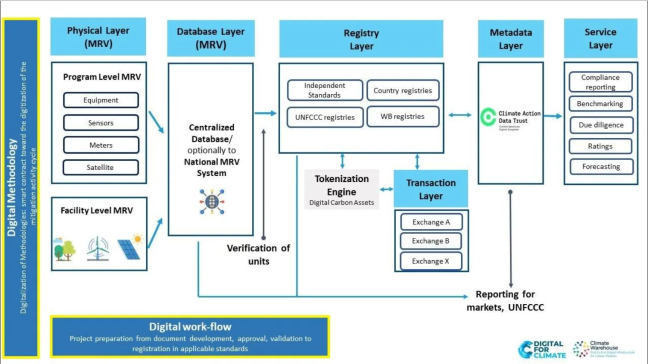
An open source software package from the Digital For Climate (D4C) consortium has recently received accreditation as a digital public good for its contribution to mitigating climate change. The accreditation has been done according to the DPGA standards. The software, known as the National Carbon Registry, enables countries to quantify and verify reductions in greenhouse gas emissions, monitor carbon credits. By facilitating credit transfers, this contributes to fostering a reliable carbon market. This objective aligns with the Paris Agreement, which promotes the utilisation of market mechanisms and carbon finance as pivotal means to attain its goals. Credit tracking is also crucial within the framework of the Paris treaty to meet countries' Nationally Determined Contributions (NDCs).
The central entity behind this software is D4C, a collaborative effort involving the European Bank for Reconstruction and Development (EBRD), the United Nations Development Programme (UNDP), the United Nations Framework Convention on Climate Change (UNFCCC), the International Emissions Trading Association (IETA), the European Space Agency (ESA), and the World Bank Group. Together, they are establishing standardised open carbon markets to facilitate the adoption of this system by both private and public stakeholders.
The National Carbon Registry software is one part of the broader initiative by D4C whose various working elements are designed to be modular, interoperable, and standardised.

The registry allows for the creation of an inventory for MRV actions (Measure, Report, and Verify emissions reductions). MRV is an approach endorsed by the European Space Agency, which employs Earth Observation-based MRV systems to potentially verify the accuracy of declared carbon credits. Consequently, the ESA is actively developing observation systems for digital MRV. The trial of such innovative solutions should also aid in clarifying the limitations of monitoring projects involving satellite based imagery.
The registry software itself is distributed under the AGPL-3.0 licence, and it builds upon a token-based system that is also open-source.
Photo by Denny Müller on Unsplash
Shared on


